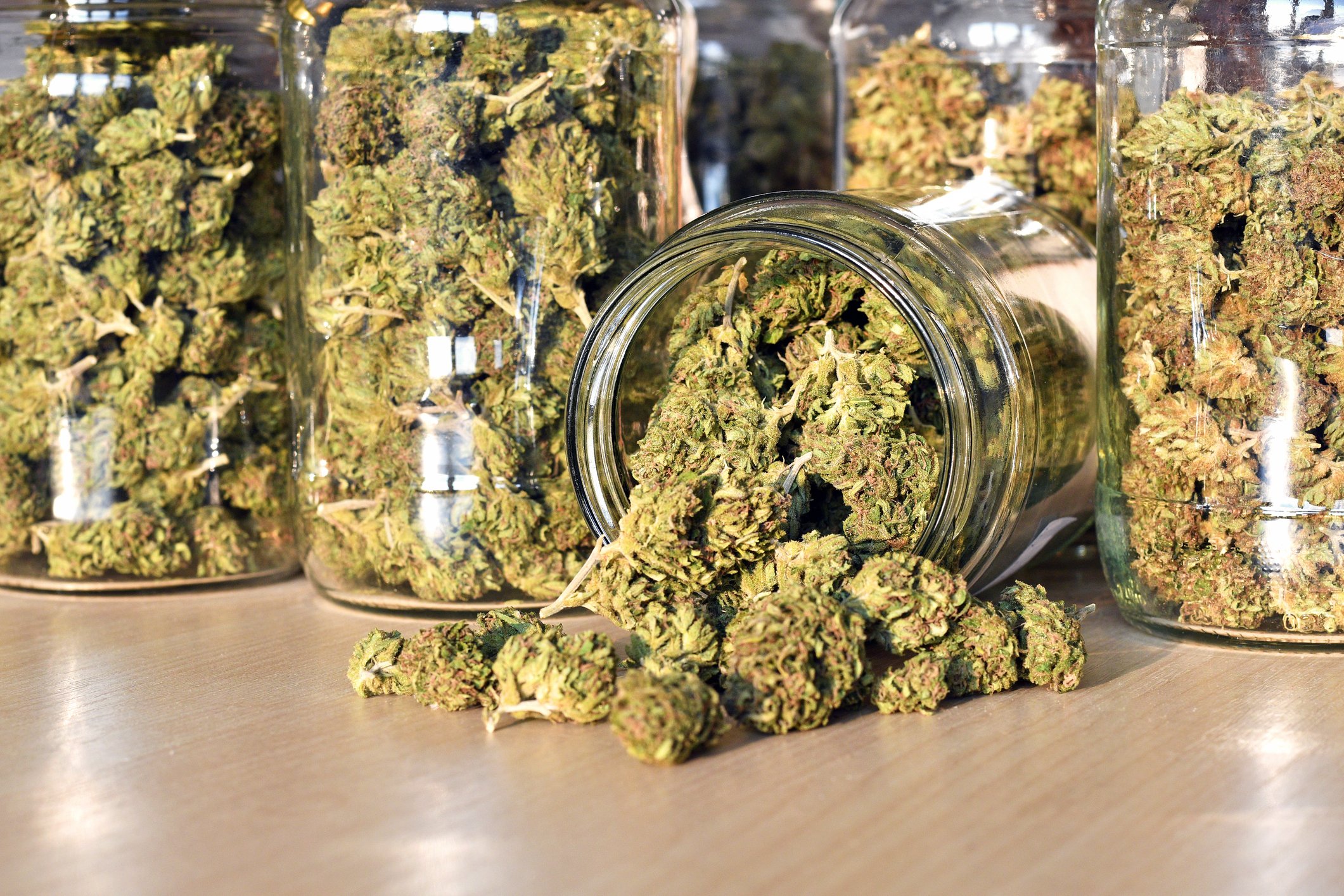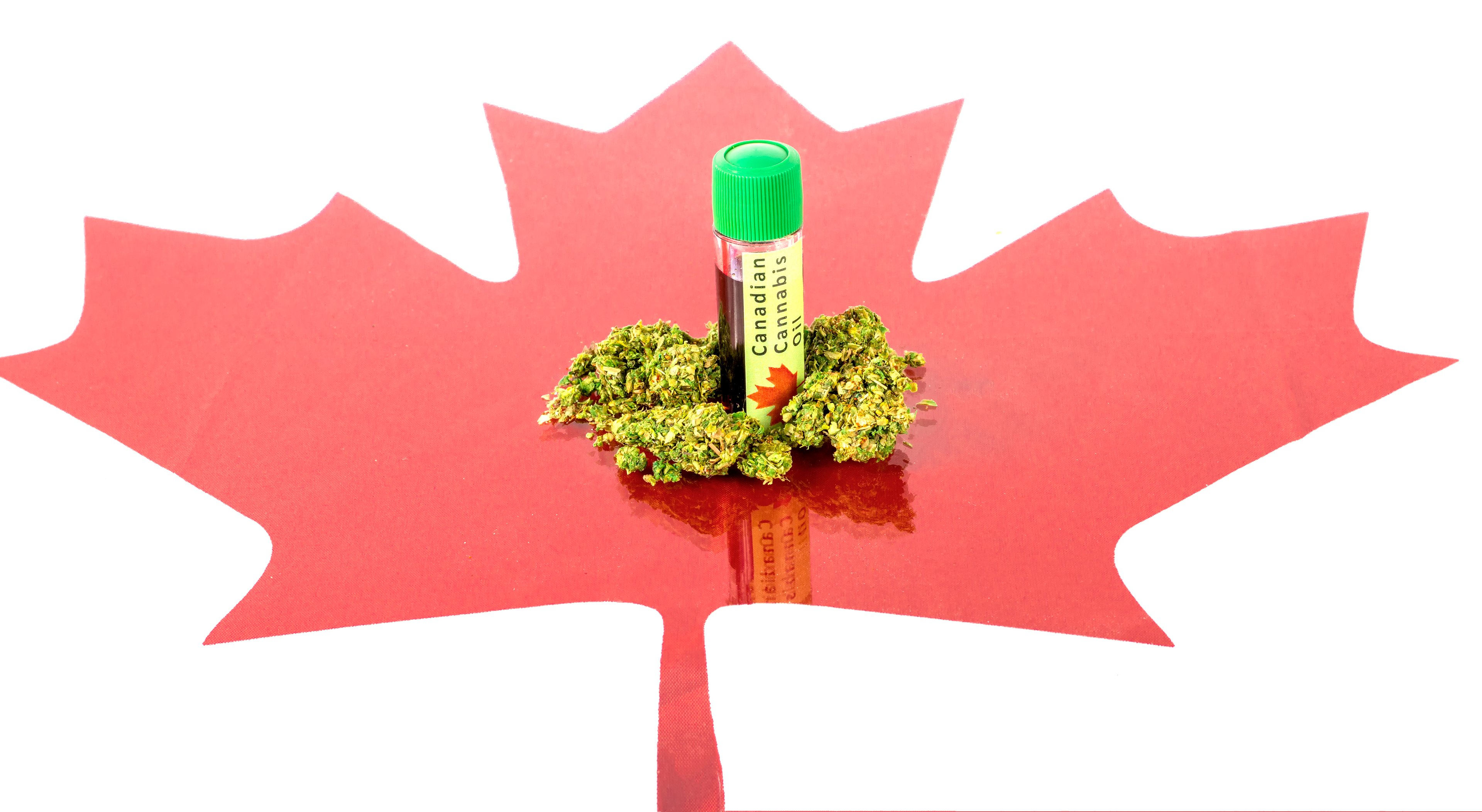Last year, both MedReleaf (NASDAQOTH: MEDFF) and Organigram Holdings (OGRMF +3.27%) boasted tremendous stock performances. MedReleaf's share price soared nearly 150%, while Organigram gained close to 90%. It's been a different story so far in 2018, though, with MedReleaf stock down nearly 20%, and Organigram basically flat for the year.
But the future prospects for these Canadian marijuana growers are much more important to investors than past performance. Which of these two marijuana stocks is the better pick now? Here are the strongest arguments for buying MedReleaf and for buying Organigram Holdings.

Image source: Getty Images.
The case for MedReleaf
Why consider buying MedReleaf stock? There are three primary reasons. First, the company claims a solid share of the expanding medical marijuana market in Canada. Second, MedReleaf is in position to increase its presence in the even larger global medical marijuana market. And third, the company looks forward to a tremendous growth opportunity with pending legalization of recreational marijuana in Canada.
On the first point, MedReleaf currently has around 17% of the Canadian market for dried cannabis. Extracts such as cannabidiol (CBD) make up a little over one-fifth of MedReleaf's total revenue, but the products are generating the most sales growth for the company.
The Canadian medical marijuana market could more than triple in size by 2024 to $1.3 billion annually. MedReleaf could possibly make in the ballpark of $250 million per year solely from medical cannabis sold domestically. That represents sales potential roughly 5.5 times the company's current level of sales, based on annualizing its latest quarterly results.
But the global medical marijuana market presents an even greater opportunity for MedReleaf. London-based Prohibition Partners projected that the European medical marijuana market could be worth $42.8 billion annually. That projection assumes that more European countries will legalize medical marijuana, but it highlights the potential. Even conservative estimates using only countries that currently allow medical marijuana reflect an opportunity several times the size of Canada's medical marijuana market.
MedReleaf is definitely angling for its place in this global medical marijuana market. The company recently announced an agreement to become the largest supplier of medical cannabis to Cannamedical Pharma GMBH, a leading medical cannabis distributor to pharmacies in Germany.
Then there's the recreational marijuana market in Canada. Although recreational cannabis use isn't legal yet in the country, the Canadian senate recently voted to allow a bill that would legalize the drug for recreational purposes to be reviewed by committees. Assuming the legislation is approved as expected, Canada's legal recreational marijuana market will open for business by September 2018.
The Canadian Parliamentary Budget Officer (PBO) projects this market to be between $4.2 billion and $6.2 billion annually. Others think it could be even higher than that. If MedReleaf can capture a market similar to what it has for dried medical cannabis, the company could be looking at additional sales of up to $1 billion per year.

Image source: Getty Images.
The case for Organigram
Investors have similar reasons to consider buying Organigram stock. Like MedReleaf, Organigram is already an active player in the Canadian medical marijuana market. Although it's smaller than MedReleaf, the company has made a name for itself. Organigram won two out of six product category awards at the 2017 Canadian Cannabis Awards.
Organigram clearly has its sights set on the Canadian recreational marijuana market as well. The marijuana grower has been busy expanding its production capacity in anticipation of recreational cannabis legalization in Canada. Organigram will have 227,500 square feet of production space when all of its building projects are completed.
The company has already signed supply agreements with two provinces for the adult recreational marijuana market. These two deals combined represent a minimum of 6,000 kilograms per year, which translates to a retail value between $48 million and $72 million.
What about the global medical marijuana market? Organigram hasn't been a major player in Germany or other markets outside of Canada yet. However, the company formed a new international division and recently hired Guillermo Delmonte to run the unit. Delmonte was previously CEO of ICC Labs, the first South American cannabis company to go public. Organigram plans to target medical marijuana markets in Europe, Australia, and in other regions across the world.
Perhaps the most compelling reason to buy Organigram is its valuation. That might sound ridiculous, considering that the stock currently trades at nearly 84 times sales. However, the massive growth prospects for Organigram using some estimates could give the stock a price-to-earnings-to-growth (PEG) ratio of close to 0.52. If the growth estimates are even close to being accurate, Organigram is arguably a bargain for growth-oriented investors.
Better buy
In my view, choosing between marijuana stocks comes down to how much production capacity you can get for the money. Using that as a guideline, MedReleaf has the advantage over Organigram.
Even though MedReleaf stock has performed poorly so far this year, I suspect that it will rebound as the date for legalization of recreational marijuana in Canada approaches. Of course, this should cause Organigram stock to jump also.
Aside from its greater production capacity, MedReleaf also has a leg up when it comes to going after the international market. The deal with Cannimedical should help the company as it attempts to catch up with rivals that already have their foot in the door in Germany.
While I think that MedReleaf is the better buy between these two, keep in mind that investing in marijuana stocks is a risky proposition. Their prospects rely entirely on sales growth meeting expectations. And despite the excitement, marijuana is still a commodity. Both the medical and recreational marijuana markets will therefore inevitably become commoditized. But I suspect that will happen later rather than sooner -- which should bode well for MedReleaf's near-term prospects.






